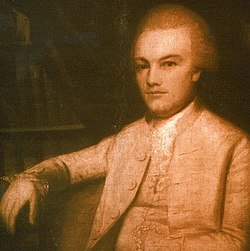Charles Pinkney was a signer of the Constitution from South Carolina an important figure in the American revolution.
Early Life and Background
Charles Pinckney was born on October 26, 1757, in Charleston, South Carolina. Educated by private tutors and trained in the law, he was admitted to the South Carolina bar before the age of 21. During the American Revolution, Pinckney served in the state militia and was captured by the British during the fall of Charleston in 1780, remaining a prisoner of war until 1781.
After the war, Pinckney resumed his legal and political career, becoming an outspoken advocate for a stronger national government and a key player in post-revolutionary South Carolina politics.
Constitutional Convention
At just 29 years old, Charles Pinckney was one of the youngest and most active delegates to the Constitutional Convention of 1787. He arrived early, spoke frequently, and was deeply engaged in shaping the new federal framework. Pinckney is believed to have submitted a draft constitution, known as the “Pinckney Plan,” early in the proceedings. While the original document has not survived and historians debate its exact contents and influence, some of its ideas—such as three branches of government and a bicameral legislature—were echoed in the final Constitution.
Pinckney was particularly committed to the idea of proportional representation in the House of Representatives and supported federal supremacy over the states. He also advocated religious freedom and opposed any religious tests for federal office, a principle ultimately enshrined in Article VI.
Pinckney signed the Constitution on September 17, 1787, and returned to South Carolina to advocate for its ratification, playing a leading role in the state’s ratifying convention.
Later Public Service and Legacy
Charles Pinckney went on to serve four terms as Governor of South Carolina and was elected to both the U.S. Senate and House of Representatives. He later served as a U.S. Minister to Spain under President Thomas Jefferson. As Minister to Spain from 1801 to 1804, he attempted to negotiate issues concerning navigation rights on the Mississippi River and territorial boundaries, though with limited success.
Throughout his political career, Pinckney aligned with the emerging Jeffersonian Republican movement, in contrast to his cousin Charles Cotesworth Pinckney, a leading Federalist. He championed state’s rights and agrarian values while also defending the Constitution he had helped shape.
Like many Southern delegates, Pinckney worked to protect slavery in both state and national law. He supported constitutional provisions that safeguarded the institution, including the Three-Fifths Compromise and protections for the transatlantic slave trade.
Charles Pinckney died on October 29, 1824, in Charleston.






